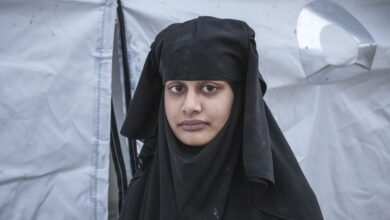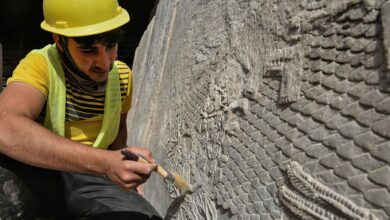The moderate Islamist Wasat Party announced on Tuesday the final wording of its parliamentary electoral platform, saying there will be no changes to the provisions that regulate the relationship between religion and the state.
Wasat spokesperson Tarek al-Malt told Al-Masry Al-Youm that the party believes the clauses of the frozen 1971 Constitution, which are also in the Interim Constitution, that designate Islam the state religion and Sharia the main source of legislation are sufficient to protect the Egypt's religious identity.
Some secular political forces have called for clauses that specify the rights of Egypt's largest minority, Copts, while some Islamist groups want additional language enshrining the Islamic nature of the state. Some ultra-conservative Salafis have called for the applicability of hudud, a traditional Islamic punishment system.
“Our stance is that the identity of the state is protected by such provisions, and it doesn’t need any additional clauses,” said Malt.
Wasat was founded by former members of the Muslim Brotherhood. Shortly after the fall of former President Hosni Mubarak, a Cairo court approved the establishment of the party, which had been trying to secure an official license for 15 years.
The party is fielding 322 candidates in list-based constituencies and 70 candidates for seats in single-winner districts. Two Copts and 69 women are among the candidates.
After Mubarak stepped down in February, allowing Islamist parties to rise, the debates around the identity of Egypt are causing deep division between religious and secular forces.
Among the Islamists, only the Wasat Party has announced publicly that it will not call for any additional provisions in the next constitution that regulate the relationship between the state and religion. The constitution is scheduled to be drafted after the parliamentary elections.
Liberal and secular parties have raised concerns that Islamist groups, including both the well-organized Muslim Brotherhood and the ultra-religious Salafi parties, will sweep the elections and therefore draft a constitution that undermines religious freedoms in the country.
“For us, citizenship is guaranteed in our electoral platform. We added citizenship and equality between individuals in our first party platform in 1996,” added Malt.
“We are advocating drafting a constitution that guarantees the establishment of a democratic state with a civilian rule.”
Some secular political groups, along with Egypt’s military rulers, have proposed drafting a supra-constitutional principles that would ensure the civility of the state, a move that could lessen Islamist influence over the drafting of the constitution, even if they sweep the elections.
Deputy Prime Minister Ali al-Selmy recently announced a controversial set of supra-constitutional principles that indicate the civil nature of the state but also give wide-ranging powers to the Supreme Council of the Armed Forces (SCAF).
“This document shouldn’t be mandatory since it does steal the right of the upcoming parliament in drafting the constitution. We proposed that Selmy’s document should serve as a guide, but after removing the controversial provisions that give SCAF impunity,” said Malt.
Also, the party platform includes restructuring the Interior Ministry’s security role. It proposes also that security forces should never intervene in politics, as was common practice under Mubarak.




